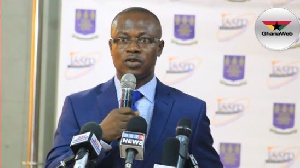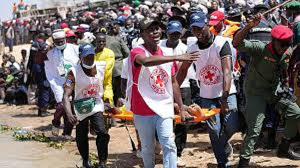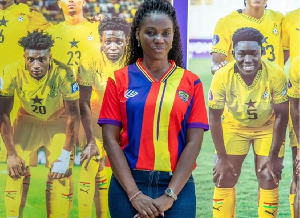Diaspora News of Thursday, 23 January 2003
Source: Sydney Morning Herald
Dilema of A Ghanaian Doctor In Australia
School fees hit foreign doctors where it hurts most - the wallet
Coleambally (Australia) -- It took six months of red tape before Dr Kofi Amponn could start work in Coleambally, allowing Dr Bob Byrne to contemplate retirement after 32 years of tending the town's sick.

The shire council found $420,000 to buy the surgery and a house in which the new Ghanaian doctor, his wife, Doris, and their three children could live.
The Murrumbidgee Division of General Practice stepped in to manage the surgery because Dr Amponn cannot own a business until he sits one more medical exam that will pave the way for Australian residency.
About the only thing the southern NSW town could not offer Dr Amponn was free public education, because the State Government charges temporary visa holders like him thousands of dollars to educate their children in government schools. Last year, $10 million was raised from the school fee policy started in 2000.
Next week when Nana, 6, and Papa Kyei, 4, go to school, the Amponns face a $9000 annual bill to enrol them in Coleambally Central School. For a fraction of that cost - $803 for two children - they can be educated at the nearby St Peter's Catholic School.
The National Party member for Murrumbidgee, Adrian Piccoli, said the fees almost cost Coleambally its new doctor.
"It's a disincentive for overseas-trained doctors," he said. "The deal nearly fell apart because of the $9000."
The chief executive officer of the Murrumbidgee Division of General Practice, Keith Fletcher, said the education fees for foreign doctors were "definitely a barrier" to recruitment.
"We're extremely lucky there's a Catholic school here that provides the Amponn family with an alternative," he said.
No Australian doctor would come to Coleambally, where 66-year-old Dr Byrne, the NSW chairman of the Rural Doctors Network, has been the only GP for the past two years. He has 4000 patients on his files in a 3400 square-kilometre area. The nearest hospital is 75 kilometres away at Griffith.
"It's nigh on impossible to recruit doctors for small country towns," Dr Byrne said.
But Dr Amponn and his wife, who is a nurse, did not fear isolation. They had worked for six years in a remote South African township before being lured to Mt Isa a year ago.
Three weeks ago they made the "long, hot drive" from Mt Isa to Coleambally. The children are already wearing out their bike tyres in the wide, open spaces.
"We find ourselves accepted. People have been lovely," said Dr Amponn, who is philosophical about the government fees. "Every system has a way it makes itself function and you have to accept that. We are still talking about it but probably they [the children] will go to the Catholic school."
In the past four years, 14 foreign doctors have filled vacancies in the Murrumbidgee region after 40 per cent of the GPs left town, retired or, in some cases, died. Last week the Rural Doctors Network advertised 90 vacancies for GPs in NSW country towns.
The Department of Education said the school fees - $4500 a year for primary school students and $5500 for secondary students - were a "partial contribution to meeting the total cost of educating a student in a government school".
Dr Byrne will retire in Coleambally and spend more time breeding racehorses. "I'm very relieved to have Kofi on board. Once he is properly inducted into this area, he'll be a wonderful country doctor," he said.












